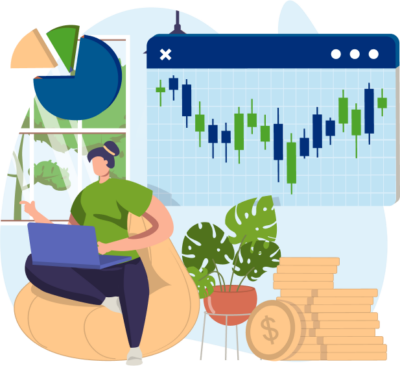What is Currency?
- A generally accepted form of money, including coins and paper notes, which is issued by a government and circulated within an economy. Used as a medium of exchange for goods and services, currency is the basis for trade.
- Currencies are often traded in by banks and financial trading institutions. Individual investors can also trade in currency derivatives to take advantage of variations in currency exchange rates. The market for currency trading is one of the biggest and fastest growing in the world


What is Currency Derivative?
- The term ‘Derivatives’ indicates it derives its value from some underlying i.e. it has no independent value. Underlying can be securities, stock market index, commodities, bullion, currency or anything else.
- These are options and futures contracts through which you can buy or sell specified quantities of pairs of currencies at a future date (which is predetermined).
- The price or exchange rate is decided on the date of purchase. The derivatives are similar to options and futures in the stock market, aside from the fact that currency pairs are the underlying assets.
- Currency derivatives are complex financial instruments which are traded over – the – counter and this is a collective term used for futures, forwards and swaps. Currency derivatives are used for hedging. This hedging involves a future payment or receive in a foreign currency.
- To put it simply an example of Derivatives is curd which is derived from Milk. Derivatives are unique product, which helps in hedging the portfolio against the future risk. At the same time, derivatives are used constructively for arbitrage and speculation too.
But you need to have your basics clear. Unless you do….you will be wasting your time and losing money. You need to be crystal clear of each and every aspect of Investments, stock options, Stock Trading, Company, Shares, Dividend & Types of Shares, Debentures, Securities, Mutual Funds, IPO, Futures & Options, What does the Share Market consist of? Exchanges, Indices, SEBI, Analysis of Stocks – How to check on what to buy?, Trading Terms (Limit Order, Stop Loss, Put, Call, Booking Profit & Loss, Short & Long), Trading Options – Brokerage Houses etc.
How Currency Derivative Works?
- Trading in these derivatives gives you an option to trade in four foreign currencies which are pegged against the Indian rupee. You can trade through futures trading contracts for different foreign currencies through leading stock exchanges in India. However, foreign institutional investors and non-resident Indians cannot trade in this market.
- Investors can hedge against foreign exchange risk and benefit from the rupee’s movement against major foreign currencies. There has been an increase in volumes of trading in currency futures over the years. The euro, Japanese yen, British pound and US dollar are the major currencies for which you can get currency derivatives paired with the rupee.
- Traders have to pay only a certain percentage value of the contracts to trade, and not the full contract value, which makes these contracts lucrative. Usually, they have to pay about 3%-5% of the value of the contracts for buying currency derivatives.


Factors Affecting Exchange Rate of Currency Economical
Currency Futures
- A currency futures contract is a standardized version of a forward contract that is traded on a regulated exchange. It is an agreement to buy or sell a specified quantity of an underlying currency on a specified date in future at a specified rate (e.g., USD 1 = INR 46.00). (Note: USD is abbreviation for the US Dollar, and INR for the Indian Rupee).”
- Currency Futures can be traded through MCXSX, NSE and USE
They are used by MNCs to hedge their currency positions and by speculators who hope to capitalize on their expectations of exchange rate movements. - The contracts can be traded by firms or individuals through brokers on the trading floor of an exchange, on automated trading systems, or over-the-counter.
- Participants in the currency futures market need to establish and maintain a margin when they take a position.
- Initial Margin: Deposit that a trader must make before trading any futures.
- Maintenance Margin: When margin reaches a minimum maintenance level, the trader is required to bring the margin back to its initial level.
Variation Margin: Additional margin required to bring an account up to the required level.


Currency Futures in India?
- Currency futures trading was started in Mumbai August 29,2008.
- With over 300 trading members including 11 banks registered in this segment, the first day saw a very lively counter, with nearly 70,000 contracts being traded.
- The first trade on the NSE was by East India Securities Ltd.
- Amongst the banks, HDFC Bank carried out the first trade.
- The largest trade was by Standard Chartered Bank constituting 15,000 contracts. Banks contributed 40 percent of the total gross volume.
- Traded in BSE, NSE and MCX exchanges
